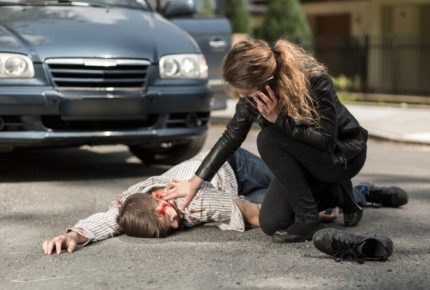

If you have been charged with gross negligence manslaughter, you may be grappling with the law and trying to understand what this offence means, and how it differs from murder. Gross negligence manslaughter is a very serious offence, which can carry a hefty prison sentence. However, it may be reassuring to know that the legal threshold for proving this offence is very high, albeit not quite so high as murder. We will explore the legal elements that the prosecution has to prove in this article. We will also provide some examples of the types of situations where a charge of gross negligence manslaughter could be brought, along with the sentencing guidelines for this offence and the possible defences that you may be able to rely upon. As always, if you are charged with a criminal offence, seek the advice of a criminal defence solicitor.
What is gross negligence manslaughter?
‘Manslaughter’ is a catch all term for offences that involve the unlawful loss of life, but which fall short of murder. To prove murder, the prosecution must show that the defendant intended to kill or grievously harm the victim at the time of events. On the other hand, to achieve a conviction for gross negligence manslaughter, the court applies an objective test that is similar to that applied by the civil court in cases of negligence.
The prosecution needs to prove all of the following:
Duty of care
Gross negligence manslaughter can only arise in cases where a legal duty of care exists between the defendant and the victim. There are some circumstances where a duty of care automatically exists, such as a doctor-patient relationship, a teacher-student relationship, or relationships involving, for example, a swimming instructor and their client, or a babysitter and the child.
More broadly, there is a duty of care owed by road users towards each other. There are also cases where a duty of care might be established on the basis of specific facts of the case. This is not to say that in these circumstances the defendant will always be culpable, though. Establishing the duty of care is just the first stage of the legal test, and it is necessary to cross this hurdle before moving to the next stage of the test.
Gross breach
The next stage of the test is that the defendant must commit a gross breach of the duty of care. This is a high threshold. To be considered ‘gross’ conduct must be more than just bad, it must be exceptionally bad.
In order to demonstrate the unacceptable nature of the conduct, the prosecution is likely to draw upon expert witnesses who can testify as to how the defendant’s behaviour departed from the norm.
Resulting in the victim’s death
The prosecution must show that the gross breach of the duty of care caused the victim’s death.
Say, for example, the defendant was a surgeon and the victim was their patient. The gross breach of duty of care was that the surgeon left his knife in the patient during an operation. The prosecution must prove that it was this error that caused the death, whereas the defence team will try to prove that it was some other cause, such as an underlying health condition of the patient that caused the death. Where there are multiple competing causes of the victim’s death, this test of causation can be complex and courts have applied this in different ways in different cases. In some well known court cases, the prosecution has relied upon statistical probability in their efforts to show causation. Whilst this is not forbidden, it is frowned upon by some experts, who argue that it is very easy to confuse or distract a jury by producing statistical evidence outside of its proper context.
Reasonable foreseeability
A charge of gross negligence manslaughter can only succeed where the death is the reasonably foreseeable consequence of the gross negligence. This means that there must be a sufficiently close connection between the act or omission to act, and the death. This is sometimes referred to as ‘legal causation.’
What are some examples of gross negligence manslaughter?
The charge of gross negligence manslaughter is most often brought where there has been an abuse of authority by a person in a position of responsibility. Here are some examples:
- A prison officer is in charge of watching over a prisoner who is severely mentally unwell, and who has been noted as a suicide risk, and who is supposed to be under 24 hour supervision. The officer who was due to cover for the officer while he takes his lunch break is off sick. So the prison officer decides to leave the prisoner in his cell unaccompanied. Whilst he is on lunch, the prisoner takes his own life.
- A drunk driver drives on the wrong side of the road and has a head on collision with another car, killing the other driver.
- A rock climbing instructor does not check that their beginner client has tied the rope correctly to their harness. The client has not completed tying the knot, which causes the client to fall from a height and die.
- A police officer uses excessive force to take down a suspect. The suspect’s head cracks against iron railings and they are killed.
- A doctor does not check a patient’s medical record, and prescribes them an antibiotic to which they are severely allergic. The patient has an allergic reaction and dies.
What are the gross negligence manslaughter sentencing guidelines?
For adults, the maximum sentence for gross negligence manslaughter is life imprisonment, with a minimum custodial sentence of 19 years. A life sentence does not mean that you will spend your whole life behind bars, but it does mean that even once you have released you will be remain on licence. This means that you could be remanded to prison if you commit further offences.
When assessing your sentence, the court will consider your culpability (blameworthiness) and the harm that you have caused.
Factors indicating higher culpability include:
- If you were negligent towards the defendant on more than one occasion, or if you were negligent towards multiple victims over a period of time
- You showed a blatant disregard towards a high risk of death
- You were motivated by financial gain
Factors which might make you less culpable include:
- If it was a one-off event
- You acted in a group of others and did not play a significant role
- You suffered from a mental disorder
The sentencing guidelines acknowledge that in manslaughter cases, the level of harm caused is always high. The sentencing guidelines for juveniles are different.
Are there any defences to gross negligence manslaughter?
Specific defences
Often defences to the charge of gross negligence manslaughter centre around arguments that the negligence committed by the defendant does not meet the high threshold of being ‘gross’. For example, it may be possible to get witnesses to testify that the conduct was not that much out of the ordinary.
Other common defence is to challenge causation, suggesting that the conduct was not causative of the death.
General defences
There are also various general defences that you may be able to rely upon. These are:
Duress: This defence may be possible if you were threatened or pressurised into committing the grossly negligent act. Say, for example, you were acting as part of a group and a senior member of the group coerced you into the act by making you fear for your life, or the life of a family member.
Mistake: This defence relates to where you were mistaken as to key facts relating to the case at the time of the offence and supposes you would not have committed the offence if you had truly understood the situation.
Intoxication: If you were involuntarily intoxicated (i.e. someone spiked your drink), this defence may be available to you.
Insanity: If you were not of sound mind at the time of the offence, you may be able to rely upon this defence. You will need to get medical evidence to prove that you were suffering from a mental health condition.
Self-defence: The law permits you to use reasonable force to defend yourself. Therefore, if you committed the grossly negligent act in order to protect yourself or another person from an imminent threat, you may be able to rely on this defence. The court will consider whether the force you used was reasonable in the circumstances, including your perception of the threat.
Where to get further help
Gross negligence manslaughter is a very serious charge. If you have been accused of this offence, make sure you have the best possible representation. At Stuart Miller Solicitors, our experienced team of criminal defence solicitors are here to help. We will ensure that your rights are respected during the court process. We will advise you on your options, and should you wish to plead not guilty, we will help you put forward the best possible defence. Contact us for a no obligation consultation today.
